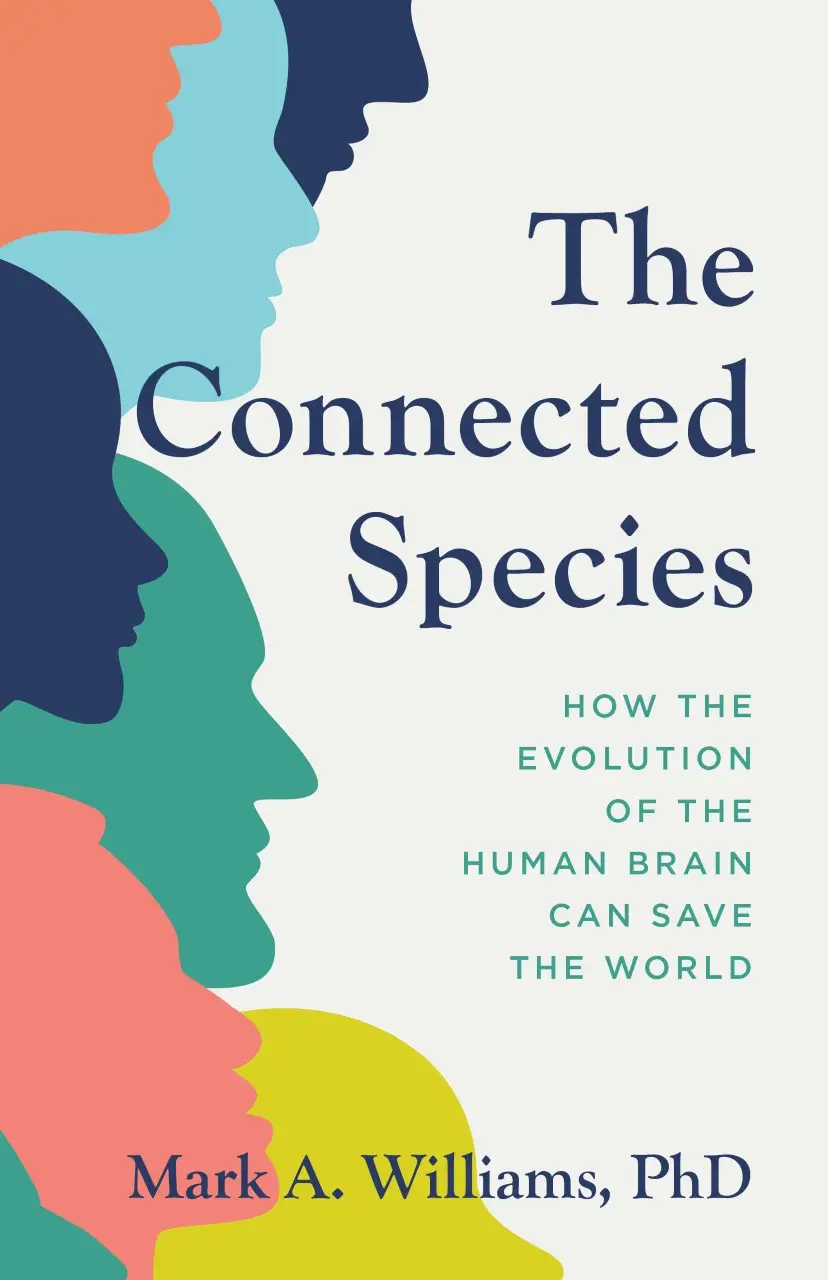It was our ability to socialize and connect that catapulted our species to phenomenal heights of innovation, through collaboration and specialization. This drive has fine-tuned our unconscious perception of faces, facial expressions, body language, and touch. Our primitive drive to connect changes how we perceive the world and the people around us. We see, hear, empathize with, and understand others differently depending on whether they are a member of our in-group or not. This unconscious drive to connect can draw us together, but it also emphasizes the differences between groups. And it is getting worse, as overcrowding, technology, and the media often focus us on our differences. We become more and more divided into groups as a result.

He starts by discussing the human brain’s specialization for connection and how it evolved, and the fascinating way we automatically process the thoughts and feelings of others. He focuses on how connection works in practice and why it is important for learning, innovating, health and wellbeing. He then explores the negative consequences of our drive for connection and explains how it contributes to racism, sexism, nationalism, and many other social issues of our day, as well as its impact on our individual health and wellbeing. He ends with a positive perspective by examining how we can use our drive for connection to expand our in-group and extend multicultural societies for the good of our planet.
I couldn’t put this book down at my first read and will be re-reading it many times. I highly recommend it as a compelling and riveting read, as well as wise and reassuring guidance for anyone who cares about the future of our species.
— Dr. Amanda Ferguson, psychologist, author of Life Works: Redsicover Yourself and Tranform Your Relationships and podcast presenter of Psych for Life
The Connected Species is gripping and humorous, provocative, moving at times, and brimming with personal reflections. Above all, it is an insightful look at the science of being a human among humans on this tiny ball hurtling through the cosmos.
— Christopher Chambers, PhD, author of The Seven Deadly Sins of Psychology and Professor of Cognitive Neuroscience at Cardiff University
In The Connected Species, Dr. Mark Williams interweaves history, psychology, and human health to tell the fascinating story of humankind. With warmth and humor, Williams explains how our species is shaped by a powerful drive to connect and affiliate—a drive that can both foster our greatest accomplishments and feed our worst inclinations.
— Rebecca Schwarzlose, PhD, author of Brainscapes: The Warped, Wondrous Maps Written in Your Brain—And How They Guide You, and neuroscientist at Washington University
In The Connected Species, Mark Williams explores the evolution of our brain in an accessible and very entertaining way, enabling the reader a thorough and comprehensive understanding of who we are today and what we might be tomorrow.
— Christian Keysers, PhD, author of The Empathetic Brain, professor of Cognitive Neuroscience at the University of Amsterdam
This book is a must-read for those who wish for a happier and healthier world for our children and grandchildren. Professor Mark Williams provides a clear and understandable picture of how our brain has evolved, and what that means for us, and our descendants. He writes with clarity and good humor, referring to evidence-based research. The Connected Species is an excellent companion to Yuval Noah Harari’s Sapiens and 21 Lessons for the 21st Century.
— Sam Ginsberg, OAM, retired psychologist and Medal of the Order of Australia recipient
Having just read A Bloody Good rant by Thomas Kennealy, Dr Mark Williams’ book The Connected Species resonates emotionally with me in the same vein. It, too, is a bloody good rant, a must-read for anyone seeking to deepen their understanding of the power of human connection and how it shapes our lives. However, it is more than just a rant. It explores the impact of meaningful relationships on our happiness, health, and overall well-being and provides insightful and practical strategies for strengthening our connections with others. So don’t miss out on the chance to enrich your life through the power of The Connected Species, and grab a copy today!
— Gunter Swoboda, psychologist, producer, author of Making Good Men Great: Surfing the New Wave of Masculinity, and host of the Inspire Change podcast
Mark breaks down the complexity of human behaviour, especially the everyday behaviours we take for granted. The impact of this knowledge and insight gives meaning to the term “think before you act” and goes a long way to teaching understanding, empathy and connection for ourselves and everyone around us. — Danny Mayson-Kinder, CEO and founder of the B Kinder Foundation
I am always suspicious if a book offers a simple recipe to heal the world, but I truly enjoyed reading Mark Williams’ thoughts. They sum up 25 years of research experience as a neuroscientist and widen convincingly the perspective from the individual to society.
Neuroscience research tells us that stereotyping and group identification are the backbone of the success of the human species. These processes need now a deliberate steering, if we want to succeed in the 21st century. Williams calls us the “connected species” and he argues that we now need to make the right connections and enable our kids to reconnect.
— Beate Wagner, Managing Director of the Global Young Academy
Williams has presented an exceptional and comprehensive case outlining the necessity and limitations for learning in social settings. It’s what makes us human; the capacity to do things for and with others. A powerful take away – communities need to be small enough for members to form positive relationships. Powerful message – well worth the read!
— Barbara J. Smith, PhD, author of Assessment Tools and Systems: Meaningful Feedback Approaches to Promote Critical and Creative Thinking


It's human nature to form groups — families, friends, online communities. We love to be surrounded by people similar to us.
But that can also make us discriminatory and defensive. And social media makes that instinct worse.
In this episode, we look at how our brains evolved to connect and divide, and what that means for the problems we face in our modern world.
Guest:
Dr Mark Williams
Cognitive neuroscientist
Author, The Connected Species: How the Evolution of the Human Brain Can Save the World
Producer:
Rose Kerr
Sound engineer:
Hamish Camilleri